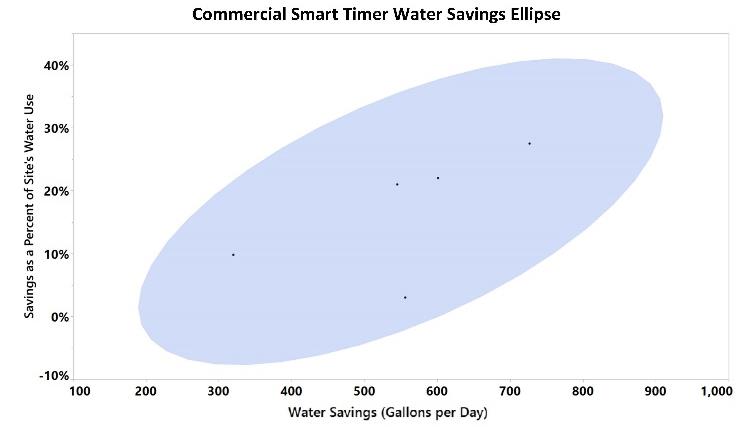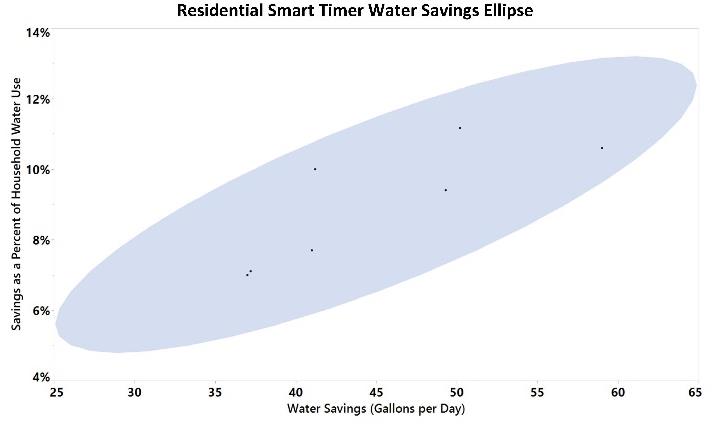Sustainable Landscapes: A Utility Program Guide
This past June, the Municipal Water District of Orange County’s (MWDOC) Smart Timer Rebate Program was featured in Alliance for Water Efficiency’s international publication, Sustainable Landscapes: A Utility Program Guide. MWDOC pioneered Smart Timers as a reliable water savings opportunity in 2001, and today, Smart Timers are considered a mainstream program by utilities across the country. Approximately 25,000 Smart Timers have been installed at residential, commercial, and public sector properties since the Smart Timer Rebate Program began, saving approximately 8,500 acre-feet of water each year.
Sustainable Landscapes Program Guide: Municipal Water District of Orange County, Weather-Based Irrigation Controller Rebate
Rachel Waite, MWDOC Water Use Efficiency Analyst II
Program Name: Smart Timer Rebate Program
Program Dates: July 2004 – Present
Program Summary: Municipal Water District of Orange County (MWDOC) has been implementing the Smart Timer Rebate Program since 2004. Through rebate incentives, the Program has prompted the installation of approximately 25,000 smart irrigation controllers across residential, commercial, and public sectors. Based on statistical water savings evaluations, these devices save 8,477 acre feet (AF) annually and have saved 55,228 AF to date.
Program Description: Using a rebate-based approach, MWDOC incentivizes the replacement of antiquated irrigation timers with smart irrigation timers, known as weather based irrigation controllers (WBICs). These smart devices “regulate irrigation water use automatically by adjusting the irrigation schedule based on site conditions via real time weather data or soil moisture conditions,” thus preventing the inefficient application of water to an area that does not need it. The installed WBIC must be an EPA Water Sense labeled device, and MWDOC performs quality control post-installation inspections to ensure the new timer is installed and functioning properly.
MWDOC has conducted several Process and Impact Evaluations of its Smart Timer Rebate Program. The Process Evaluations enable customers to provide feedback on their experience participating in the program, while the Impact Analyses use statistical evaluations to determine achieved water savings. A Process Evaluation survey conducted in 2018 found that 60 percent of customers who replaced an old antiquated irrigation timer with a WBIC believed they were saving water, and 73 percent perceived either a positive or no change to their landscape after installation. The survey also found that about two thirds of participants likely would not have purchased a new device without the incentive, indicating that the Program is successful in “incentivizing those who would otherwise not implement the water savings measure.”
The Impact Analyses analyze historic water consumption data and consumption data from the period after new device installation. A 2018 analysis found statistically significant water use reduction in customers who installed WBICs: they reduced their water use by an average of 50 gallons per day (gpd), or 11 percent overall. The results of analyses covering the entirety of the Program have found residential savings ranging from 41 to 59 gpd and a 10-11 percent overall reduction, and commercial savings ranging from 320-727 gpd and 10-28 percent overall reduction. A benefit of performing multiple analyses is that MWDOC is able to fine-tune the actual and predicted water savings associated with WBICs, as shown in the predictive ellipses provided.


Organizational Structure/Staffing: MWDOC assigns a Project Manager to the Smart Timer Rebate Program who oversees consultants and agreements, project promotion and marketing, and grant management. Additional Program staff include interns to assist with customer service and day-today tasks, and a program analyst to evaluate the Program. Other members of the MWDOC Water Use Efficiency Team are cross trained in all of MWDOC’s conservation programs and provide additional assistance to the Smart Timer Rebate Program when needed. Quality control inspections and rebate processing are performed by a contracted third party.
Budget/Funding: MWDOC’s Smart Timer Rebate Program budget includes program management, quality control inspections, administration fees, and rebate funding. Funding for the rebate is provided by the Metropolitan Water District of Southern California, local retail water providers, and MWDOC-procured state and federal grants. From 2012 to 2018, MWDOC received and expended over $975,000 dollars in grant funding from state and federal sources. Currently, residential sites in Orange County may receive $80 to $200 per timer, commercial sites are eligible for $35 to $85 per station, and public agencies are eligible for $55 per station. Funding is dependent on the customer’s retail water agency and active grant awards, and will not exceed the cost of the device.
Lessons Learned: MWDOC’s 2018 Process Evaluation survey found that approximately 4 percent of Smart Timer Rebate customers learned about the program when participating in another rebate program, “suggesting that improving cross-program marketing may be a helpful improvement.” MWDOC found that customers preferred communication about future conservation programs through their water bill and through email. When customers had the opportunity to provide suggestions to MWDOC, they proposed improving marketing and offering more resources for program participants to learn about their new device “and applicable maintenance, tips, and suggestions.” Soliciting direct feedback from customers is helpful in improving program operations and providing the best value possible.

